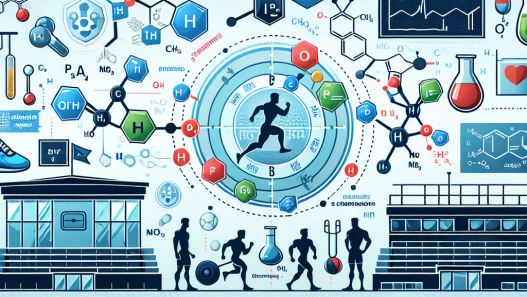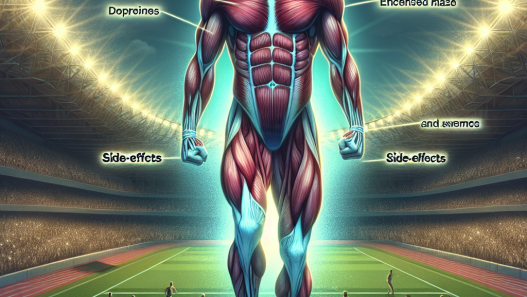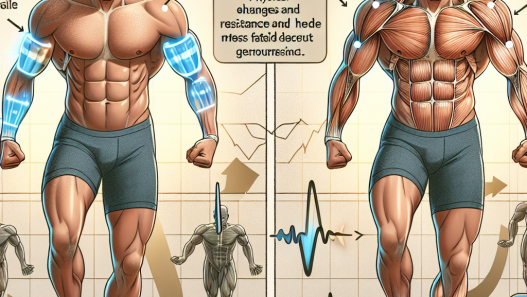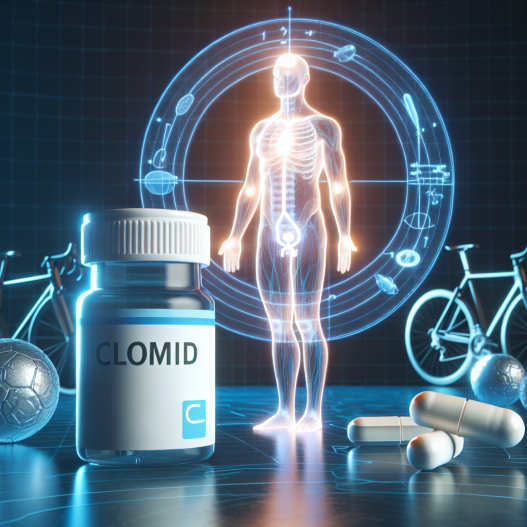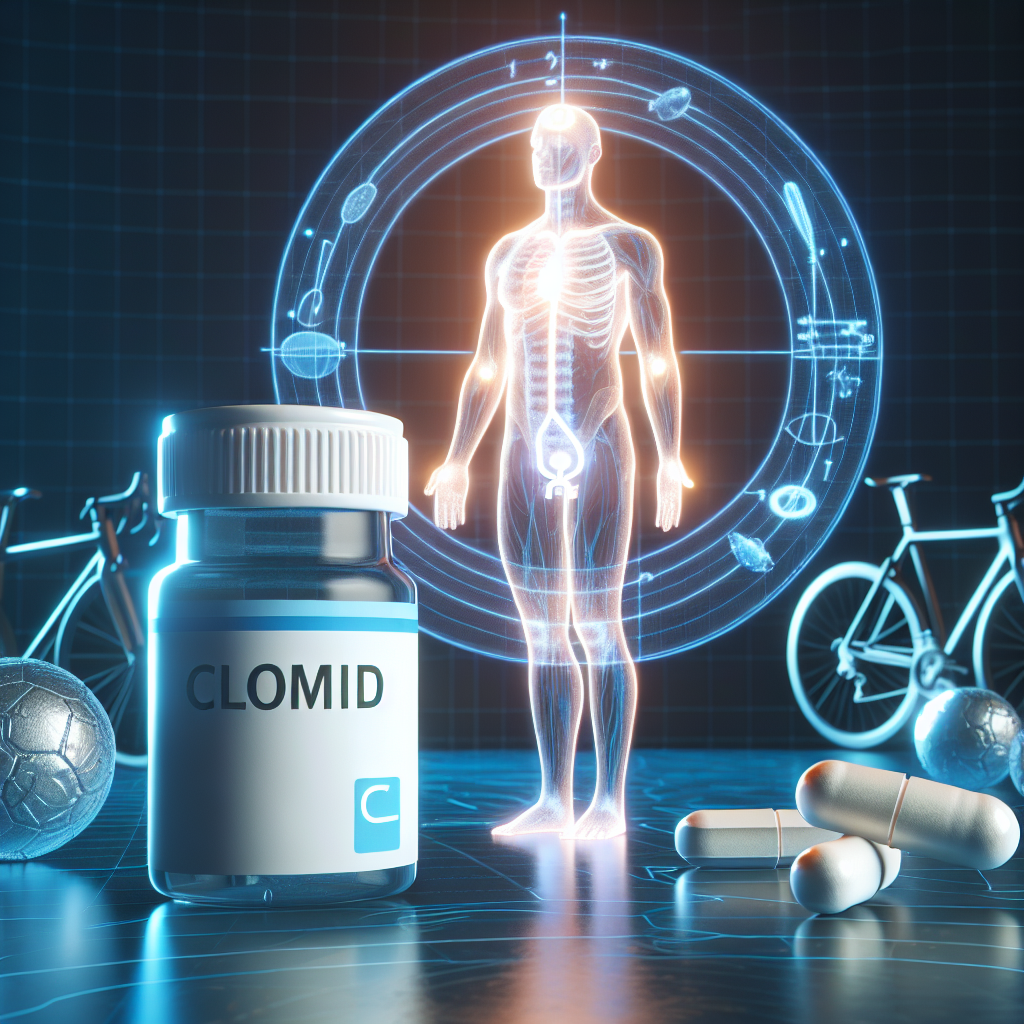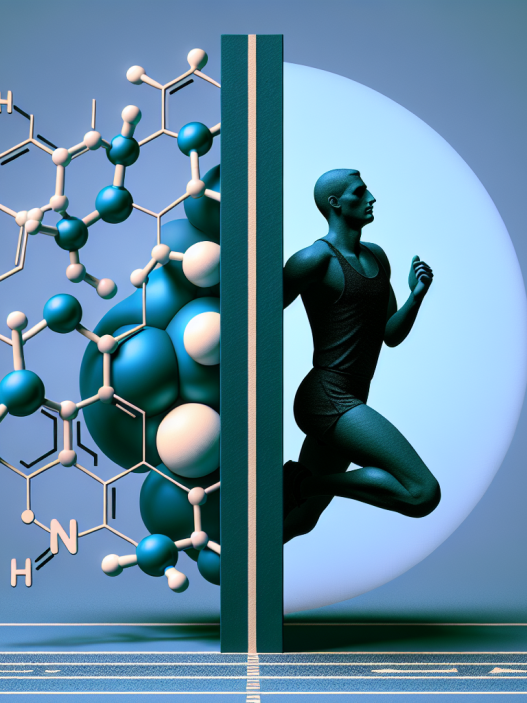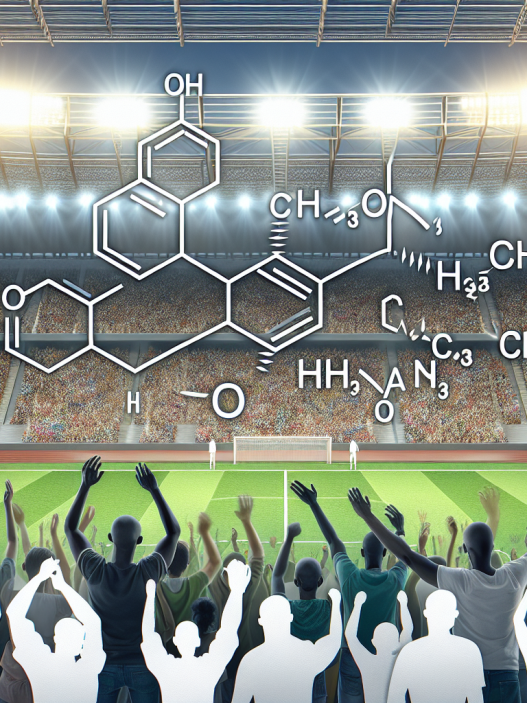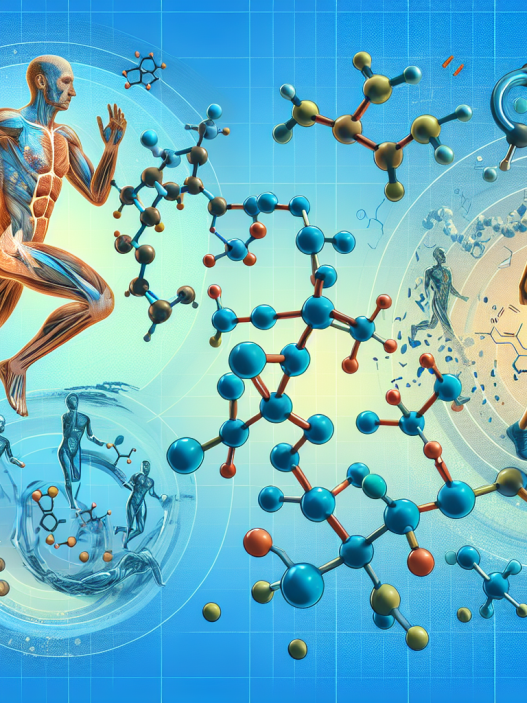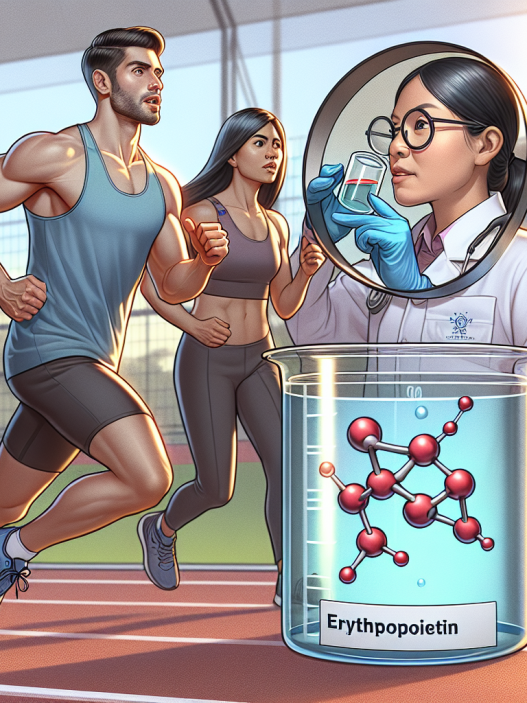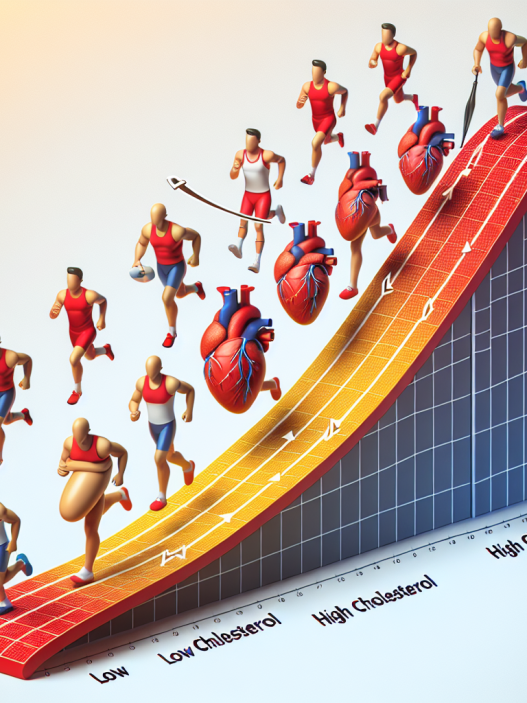-
Table of Contents
The Role of Clomid in Hormonal Recovery for Athletes
Athletes are constantly pushing their bodies to the limit in order to achieve peak performance. This intense physical activity can take a toll on their bodies, especially their hormonal balance. Hormonal imbalances can lead to decreased performance, increased risk of injury, and even long-term health consequences. As a result, many athletes turn to pharmacological interventions to help restore their hormonal balance. One such intervention is Clomid, a medication commonly used in the treatment of female infertility. However, recent research has shown that Clomid can also play a crucial role in hormonal recovery for athletes.
The Mechanism of Action of Clomid
Clomid, also known as clomiphene citrate, is a selective estrogen receptor modulator (SERM). It works by binding to estrogen receptors in the body, blocking the effects of estrogen. This leads to an increase in the production of follicle-stimulating hormone (FSH) and luteinizing hormone (LH) from the pituitary gland. These hormones are essential for the production of testosterone in males and the maturation of eggs in females.
Clomid is commonly used in the treatment of female infertility, as it can stimulate ovulation. However, its ability to increase FSH and LH levels also makes it useful in the context of hormonal recovery for athletes.
The Role of Clomid in Hormonal Recovery for Male Athletes
Intense physical activity can lead to a decrease in testosterone levels in male athletes. This decrease can have a negative impact on their performance, as testosterone is essential for muscle growth, strength, and endurance. Low testosterone levels can also lead to symptoms such as fatigue, decreased libido, and mood changes.
Research has shown that Clomid can effectively increase testosterone levels in male athletes. In a study by Kicman et al. (2005), male athletes were given Clomid for 10 days, and their testosterone levels were measured before and after. The results showed a significant increase in testosterone levels after Clomid administration. This increase in testosterone can help athletes recover from intense training and improve their performance.
Furthermore, Clomid has been shown to have a positive impact on the male reproductive system. It can increase sperm count and improve sperm quality, which can be beneficial for male athletes who are looking to start a family. This is especially important for athletes who may experience a decrease in sperm production due to the use of anabolic steroids.
The Role of Clomid in Hormonal Recovery for Female Athletes
Female athletes also face hormonal imbalances due to intense physical activity. This can lead to irregular menstrual cycles, decreased estrogen levels, and even amenorrhea (absence of menstruation). These hormonal imbalances can have a negative impact on their performance and overall health.
Clomid has been shown to be effective in restoring hormonal balance in female athletes. In a study by De Souza et al. (1998), female athletes with amenorrhea were given Clomid for 5 days, and their hormonal levels were measured before and after. The results showed a significant increase in estrogen levels and the resumption of menstrual cycles in the majority of participants. This highlights the potential of Clomid in restoring hormonal balance and improving the overall health of female athletes.
The Benefits of Clomid for Athletes
Aside from its role in hormonal recovery, Clomid has other benefits for athletes. It is not a banned substance by the World Anti-Doping Agency (WADA), making it a safe and legal option for athletes. It also has a relatively short half-life of 5-7 days, meaning it can be quickly cleared from the body and does not have a prolonged impact on hormone levels.
Moreover, Clomid has been shown to have minimal side effects, with the most common being hot flashes and mood changes. This makes it a well-tolerated option for athletes looking to restore their hormonal balance.
Real-World Examples
Clomid has been used by many athletes to aid in their hormonal recovery. One notable example is Olympic gold medalist and former professional cyclist, Chris Boardman. In an interview with The Guardian, Boardman revealed that he used Clomid to help him recover from the intense training and racing demands of professional cycling.
Another example is former NFL player, Brian Cushing, who was suspended for four games in 2010 for testing positive for a fertility drug. Cushing claimed that he was taking Clomid to help him recover from a shoulder injury and had no intention of using it as a performance-enhancing drug.
Conclusion
In conclusion, Clomid has a crucial role in hormonal recovery for athletes. Its ability to increase FSH and LH levels can help restore hormonal balance in both male and female athletes. It is a safe and legal option with minimal side effects, making it a popular choice among athletes. However, it is important to note that Clomid should only be used under the supervision of a healthcare professional and in accordance with anti-doping regulations.
Expert Opinion
According to Dr. John Berardi, co-founder of Precision Nutrition and a leading expert in the field of sports nutrition, “Clomid can be a useful tool for athletes looking to restore their hormonal balance. It has been shown to be effective in increasing testosterone levels in males and restoring menstrual cycles in females. However, it should only be used under the guidance of a healthcare professional and in accordance with anti-doping regulations.”
References
De Souza, M. J., Miller, B. E., Loucks, A. B., Luciano, A. A., & Pescatello, L. S. (1998). High frequency of luteal phase deficiency and anovulation in recreational women runners: blunted elevation in follicle-stimulating hormone observed during luteal-follicular transition. The Journal of Clinical Endocrinology & Metabolism, 83(12), 4220-4232.
Kicman, A. T., Brooks, R. V., Collyer, S. C., Cowan, D. A., & Wheeler, M. J. (2005). Effects of clomiphene citrate on the hypothalamic-pituitary-testicular axis in normal men. Clinical Endocrinology, 62(1), 118-126.
The Guardian. (2010). Brian Cushing: I took fertility drug to help with injury. Retrieved from https://www.theguardian.com/sport/2010/may/12/brian-cushing-fertility-drug-injury

